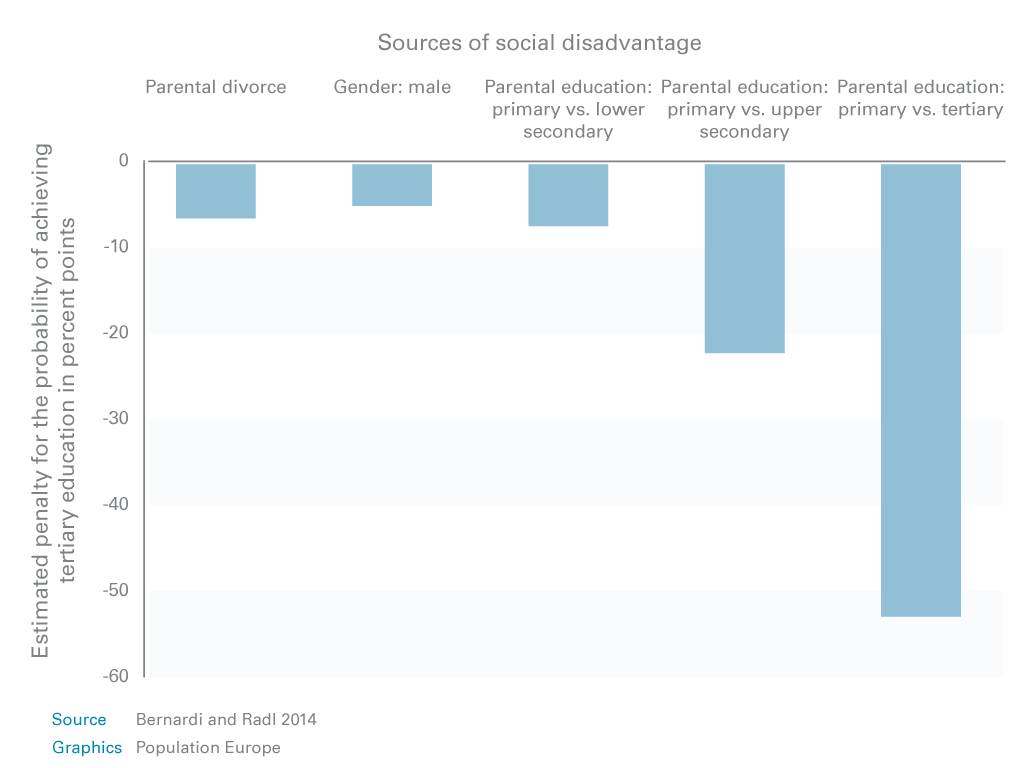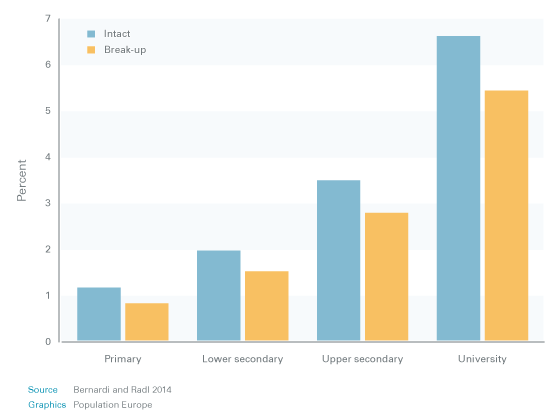Can parental divorce affect the chances of children to obtain a university degree? By studying divorce in 14 countries (Australia, Austria, Belgium, Bulgaria, Estonia, France, Georgia, Hungary, Italy, Lithuania, Norway, the Netherlands, Romania, and Russia), Fabrizio Bernardi and Jonas Radl explored its long-term consequences on education achievement and found a negative, although relatively small effect.
Divorce effect in comparison
With data from the Generations and Gender Survey, they found that, on average, the chances of receiving a university degree were about seven points lower for those having divorced parents than for those who had not. This is about the same disadvantage that men have with respect to women in obtaining a university degree. The impact of divorce, however, is much less than the impact of the parents’ socioeconomic background. As shown in Figure 1, the chances of children of low educated parents receiving a university degree are 53 points lower than children of parents with tertiary education, and 22 points lower than those with parents with an upper secondary education.

Figure 1: Divorce penalty in comparison
The effects vary depending on parental education
This penalty is not uniform and varies by socioeconomic background. In Figure 2 it can be seen that parental divorce tends to be more detrimental for children of highly educated parents: the gap between children from divorced and intact families is larger for those whose parents have a university education than for those whose parents only have a primary education. For children from low educated families, the chances of going to a university are rather low to start with, and a divorce does not seem to make a real difference. And if we look at Figure 2 from another perspective, we can also see that the degree of inequality based on social background is greater among intact families than among divorced families.

Figure 2: Predicted probability of tertiary education attainment by parental divorce and parental education
The role of country characteristics
The effect of parental breakup on children was found to be independent of divorce rates inside countries. Regarding characteristics of educational systems, the findings indicate that in countries where selection into different types of schools occurs at young ages, like in Germany or Austria, divorce appears to have more negative consequences for the children of poorly educated mothers.
This PopDigest is also available in French, Spanish and German.

*This PopDigest has received funding from the European Union's Seventh Framework Programme (FP7/2007-2013) under grant agreement n° 320116 for the research project FamiliesAndSocieties.
FamiliesAndSocieties (www.familiesandsocieties.eu) has the aim to investigate the diversity of family forms, relationships and life courses in Europe, to assess the compatibility of existing policies with these changes, and to contribute to evidence-based policy-making. The consortium brings together 25 leading universities and research institutes in 15 European countries and three transnational civil society organizations.